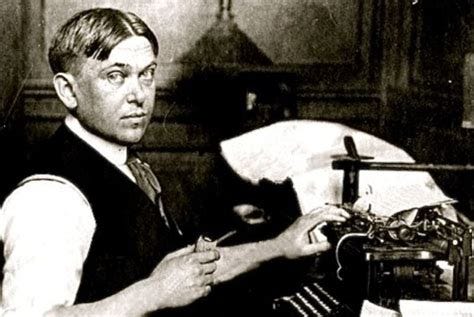The holidays are here, and that means a fresh crop of cocktail books. And just about every one of them can be expected to cite a quote long attributed to the Sage of Baltimore, H. L. Mencken. We’re told time and again, not only that Mencken sang the praises of the essential cocktail, but that he sang them thusly: “The Martini is the only American invention as perfect as the sonnet.” Sometimes it will be “as a sonnet.”You’ll find the quote all over the place. It is in Martini by David Taylor and in The Little Book of Cocktails: Shaken to Perfection. It is in Shane Carley’s Martini Field Guild, Sally Ann Berk’s Martini Book, and in The Martini: An Illustrated History of an American Classic by Barnaby Conrad. The Little Book for Cocktail Lovers by Rufus Cavendish endorses the line, as does Dwight Garner in his book The Upstairs Delicatessen.
Nannette Stone uses the quote in her Little Black Book of Martinis: The Essential Guide to the King of Cocktails. Iain Gately cites Mencken as saying the Martini is the equal of a sonnet in Drink: A Cultural History of Alcohol. So too Alcoholica Esoterica by Ian Lendler and Drinks: A User’s Guide by Adam McDowell. Blithe Spirits: A Toast to the Cocktail by Jill Spalding perpetuates the error.
You get the idea.
Those who like their literary citations accurate, true and bottled in bond, are well advised to be wary of cute or clever cocktail quotes. Add to that the fast and loose way people have with Menckenalia, and one might be forgiven for suspecting the quotation is – as a Guy Ritchie character might put it – Moissanite, Mickey Mouse, Spurious, Not Genuine.
As with many a phony quote used as filler, it is both everywhere and nowhere. It is cited reflexively and relentlessly but it is never attributed to a specific work or pinned to a particular time.
But proving a negative is a tricky business. It calls for expertise. And so I turned to an eminent Mencken scholar, S.T. Joshi, to see what he makes of the oft-repeated line: “I have transcribed the totality of Mencken's published writings,” Joshi said. In those 12 million some words, he never saw the quote in question, the one about Martinis and sonnets. “I think it is safe to say that it is highly unlikely that the quotation can be attributed to Mencken.”
At least it affords us an excuse to print an actual Mencken quote invoking Martinis, one that has the double virtue of 1) not being phony, and 2) not being schmaltz. Here goes:
“All the great villainies of history, from the murder of Abel to the Treaty of Versailles, have been perpetrated by sober men, and chiefly by teetotalers,” Mencken declared in a 1924 essay, “Meditations in the Methodist Desert.” By contrast, all “the charming and beautiful things, from the Song of Songs to terrapin a la Maryland, and from the nine Beethoven symphonies to the Martini cocktail have been given to humanity by men who, when the hour came, turned from well water to something with color to it, and more in it than mere oxygen and hydrogen.”
Now that sounds like the Great Curmudgeon.
If, however, you are able to prove that I have got it all wrong, do let me know so that I might toast you as I correct the record.




The estimable David Wondrich has come to the defense of the faux Mencken quote, pointing to a a reference by Alistair Cooke. I am not convinced. For example, the Martini goes unmentioned in the essay about Mencken that Cooke wrote for the Atlantic: https://www.theatlantic.com/magazine/archive/1956/05/the-last-happy-days-of-h-l-mencken/640376/. Nor is the quote to be found in Cooke's collection of Menckeniana, "The Vintage Mencken."
But even if we have in hand a solid citation from Cooke, we still lack any direct evidence. The best we could do would be to say that "According to Alistair Cooke, Mencken is said to have called the Martini etc etc..."
cheers,
Eric
Always disheartening to see a cherished cocktail quote debunked. Ah, well! I visited the Mencken home in Baltimore last February, which is a museum now, though seldom visited. Fascinating place.